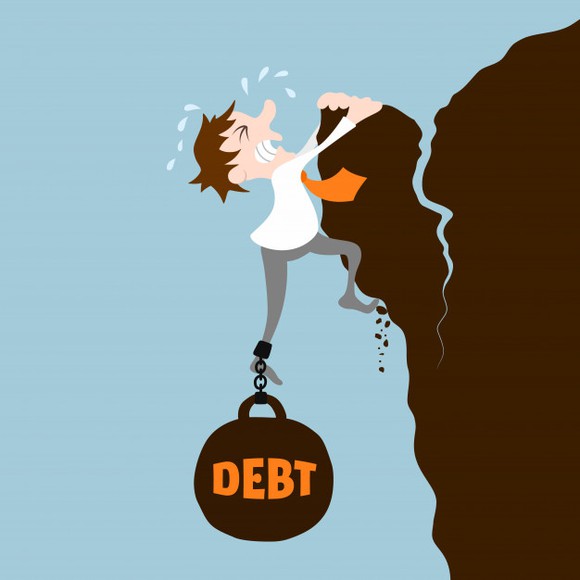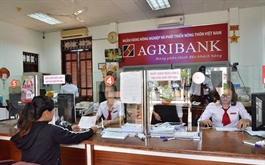Non-performing loans weighing heavy on banks
Non-performing loans weighing heavy on banks
Notwithstanding the perils brought about by the Covid-19 pandemic, the recent half-yearly financial statements of listed banks shows huge profits. Some banks even showed a profit-before-tax of almost 50%. Nonetheless, the banking industry is facing a high risk of increasing non-performing loans (NPL) in the latter half of the year, which many even extend into 2021.
 |
Bank circular insufficient
Circular 01 issued by the State Bank of Vietnam in mid-March this year allows banks to reschedule their loan repayment terms, and keep all debt groups to support customers affected by the Covid-19 pandemic. Disbursements prior to 23 January 2020 which are proven to have been impacted by the Covid-19 pandemic will benefit from this Circular. For businesses, the repayment period will be restructured and for the banks, the actual overdue debts will remain in the same group of debts when classified.
Since the debt group will remain intact, banks will not be required to make provisions, though the provision will be arbitrary. This is the factor that is being seen as a blur in banking profits in 2020, although the provisions of Circular 01 are intended to support both businesses and banks to be able to buy more time in this ongoing phase of the pandemic and help reduce its direct impact. The occurrence of the pandemic so suddenly and its uncontrollable spread across the globe has changed the business environment a lot since March, and continues to do so. The second wave of the pandemic hit Vietnam at the end of July, and the entire world is still finding it difficult to contain its further spread.
Although the financial statements of banks do not fully disclose the status, the risk of bad debts still looms large. Especially loans taken after 23 January 2020 are still at risk because it is uncertain when the Covid-19 pandemic will ease or for how long this prevailing situation will continue. In the first half of 2020, many banks saw total bad debts increase rapidly, such as Vietcombank (VCB) saw an increase of 11% compared to the beginning of the year, BIDV saw increase of 17%, Vietinbank (CTG) saw an increase of 48%, Sacombank (STB) saw an increase by 17%, OCB showed an increase by 14%, and Eximbank (EIB) bad debt increased by 12%. As banks cannot ignore an increasing risk of bad debts, they continue to make suitable provisions. However, only when Circular 01 is amended, the debt group will transform and the whole picture will become clearer.
By the end of June 2020, the total restructuring of debt in the entire banking industry according to Circular 01 was at VND 177,000 bn, equivalent to 2.1% of total credit. Statistics from SSI Securities Company shows that bad debt increased 18.1% year-on-year while group 2 debt increased by 15.4%, showing the prospect of more new bad debts in the last months of 2020.
As the provisioning of risks is completely arbitrary, the biggest problem is that only bank knows their actual bad debt status. For example, in the first six months of this year, provision expenses increased the highest at ACB, also in TCB at about 400% over the same period, and at VCB at 80%. Statistics of Rong Viet Securities with listed banks shows that the average NPL ratio increased from 1.7% at the end of 2019 to 2% at the end of June 2020 and the debt ratio of group 2 against total outstanding loans also increased from 1.5% to 1.7%. This means that banks such as ACB, VCB, and TCB will reduce provision expenses in the last months of the year, while the remaining banks have to increase their burden if they use the advantage of deferring debt rescheduling according to Circular 01.
Concerns can become reality
Pushing the risk of bad debt into the future makes the financial picture as well as bank profits more unpredictable. Circular 01, even when amended, cannot last long and finally the time will come when bad debts must be classified to the right level. This is why the analysis shows that risks to banks will increase by the end of 2020, and even continue into 2021.
One analyst at SSI Securities Company estimates that bad debts and restructured loans will increase rapidly by the end of this year, causing banks to lose profits. Based only on State Bank of Vietnam's calculations, at the end of the first quarter of 2020, there was about VND 2,000 trn in outstanding loans, accounting for 23% of total credit. The pandemic is still ongoing so the number of borrowers are having difficulty in repaying loans. It is expected that the revised Circular 01 will allow restructuring of the repayment period, keep the group of eligible debts for disbursement from 23 January 2020 to 24 April 2020. As such, there is still a possibility that more overdue debts will arise and banks will have to increase the restructuring list or classify bad debts, thereby increasing provisioning.
The SSI Securities Company analysed that a loss of interest income is related to restructuring debt and recoverable bad debt, and a part of interest income in the first six months of 2020 may be withdrawn due to downgrade of this debt. The negative effects of the interest rate cuts will persist throughout the second half of 2020 and SSI Securities Company estimates that the net profit margin (NIM) will drop by a further minus 60 bp in the second half of 2020 if concerns become a reality. Accordingly, SSI Securities Company also estimates that in the second half of the year the profit-before-tax of listed banks could decrease by 22.1% year-on-year due to a 4% drop in operating income and a 47.8% increase in provision expenses.






























